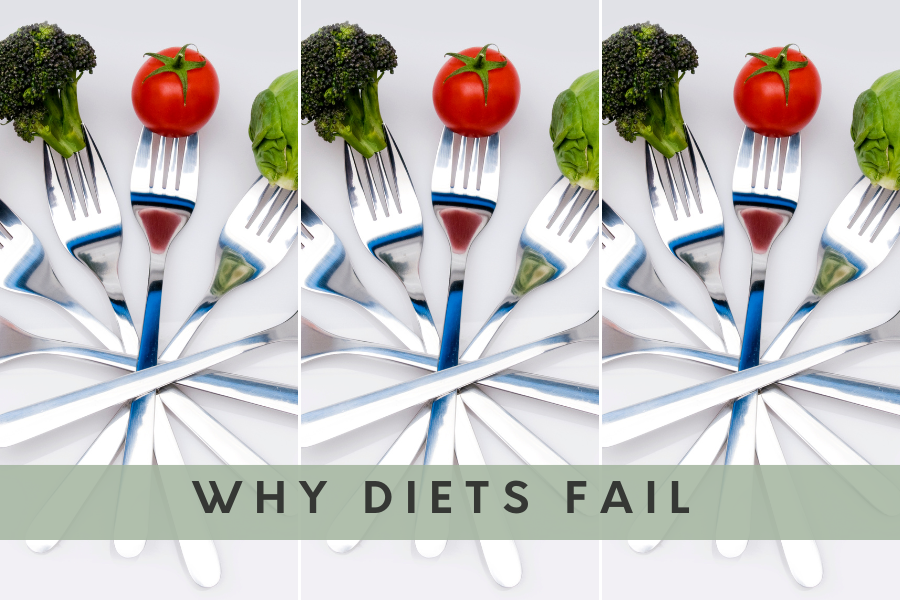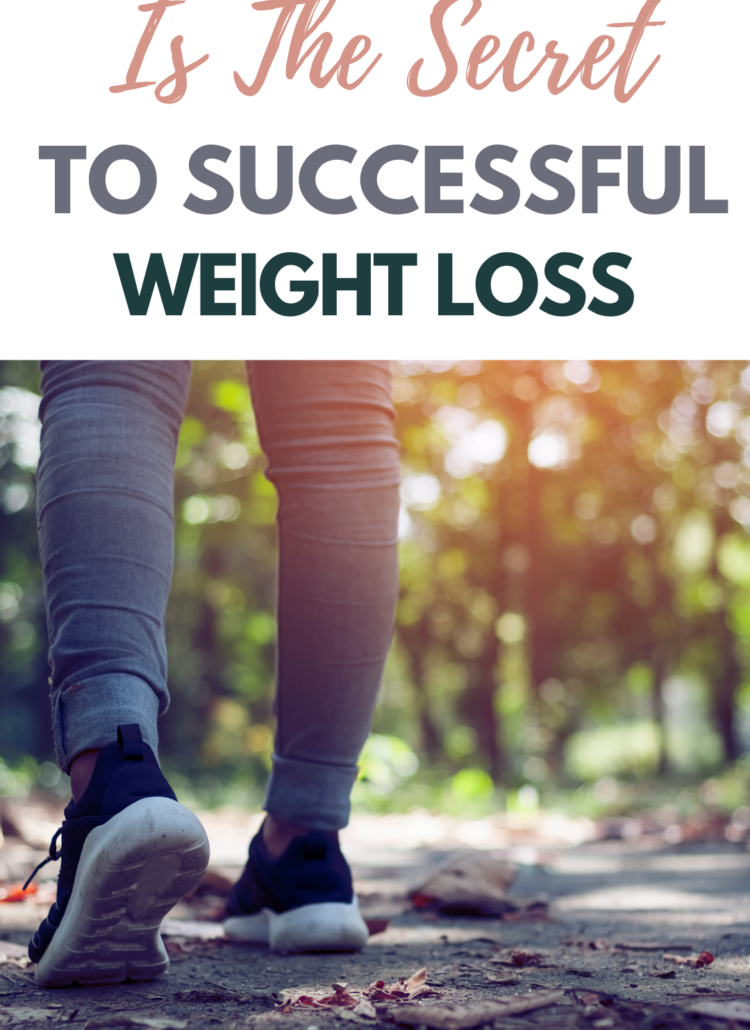Why Most Diets Fail, And What You Can Do About It

The sad truth is that most people who set out on a weight loss diet will fail. But why do most diets fail?
Not only do they fail, but 60% of those dieters will actually to gain more weight than when they started due to screwing up their metabolism in the process.
Women will try over 130 diets in their lifetime, averaging about 2 a year that lasts just 30 days each.
So what can you do differently to try and make sure you get into the top 5% of dieters that actually succeed and be able to keep it up without giving up your entire life in the process?
1. Going In Too Hard
When getting started with any diet, it’s all very well to go in all guns blazing. Motivation is high and the promise from the marketing material says that this is going to be the diet that finally works for you.
The truth is that many diets are too restrictive, they cut calories down too low, too quickly, cut out major food groups or have too many banned foods.
Combine this with intense exercise on a schedule that is way more than you really have time for and it becomes incredibly unsustainable, not to mention painful and stressful. This conjures up a pretty miserable experience, that most people with busy lives just can’t keep on going with.
Do this instead — When starting any diet ask yourself if you could see yourself eating this way in a year’s time. Could you keep on exercising this way forever? If not, maybe give that diet a wide birth.
Start small and be patient.
2. For The Love Of Food
Loving food too much is a common excuse that I think most of us have uttered at some point in our dieting experiences. Believing that you have to give up all the foods that you love puts a lot of emphasis on your willpower.
Most of us suck when it comes to willpower, and so relying on willpower alone is a sure route to failure.
Do this instead — Remind yourself that no foods are barred, you don’t have to cut out entire food groups. You can eat the foods you love, when they are balanced out with foods that will support your goals.
Learn to make healthy meals that also taste good too, without having to obsess over rules and restrictions. Learn what a balanced diet means to you and fill up on the good stuff so your body isn’t constantly starving and craving missing nutrients. Enjoy the foods that you love, just don’t be a dick about it when you are eating them.
3. Giving Up Your Social Life
The above-mentioned rules and restrictions can make having a social life extremely hard. Sure I believe there will be times we can say no to a night out or event in the name of self-care. I’m a natural introvert and space and time alone are essential for me.
But continually avoiding going out so that you can stick with your diet is pretty disordered behaviour. Life is way more than being on a diet and giving up precious time with the people that you love.
Do this instead — Allow yourself the freedom to do the things you love. That will sometimes include food and drink. Yet nothing is barred you can approach it with the mentality of knowing you don’t need to binge or gorge to enjoy.
Be mindful about what you are consuming and check in with yourself regularly and ask yourself how you feel. You soon come to realise that eating the junk you thought you wanted doesn’t actually feel that good.
4. The Stress Factor
Stress is a major component of dieting success. Think about all of the times you have fallen off your diet before. Chances are it was an emotional response to a seemingly stressful thought or experience. Am I right?
Yet we live in a time when stress is at an all time high. We are constantly switched on and downtime is lacking. If you want to feel more balanced with your eating behaviours and managage emotional triggers, work on reducing your stress levels.
Do this instead — Explore stress management tools and implement the ones that are most effective for you into part of your self-care routine. The less stressed you are, the easier it is to stay in alignment with your diet and fitness intentions.
For me personally, the best ways to manage stress are by prioritising sleep, journaling, walks in nature and meditation. Find what works for you.Why You Need To Prioritise This First If You Want To Lose Weight
The Key to a Happier Healthier Youmedium.com
5. Dieter Individuality
Most diet programmes are cookie cutter programmes. Meaning that everyone gets the same bulk of information. And I’ll be honest I run a group fitness and nutrition programme and there has to be some standardising in the practices unless you want one-to-one coaching.
A lot of base practices will apply to most people. But I’m also very careful to impress throughout the entire experience, that health and nutrition is never a one size fits all approach, it’s infinatly varied from one person to another.
There has to be flexibility and individuality as what works for one person, maybe a complete disaster for another. We all differ in physiology, psychology, personal preferences as well as lifestyle/time availability.
Do this instead — Approach any diet as an experiment, learn to monitor how your body responds to different foods and styles of eating. If what you are doing helps you manage your hunger, energy and cravings as well as helps you to maintain your optimum physique, then keep doing that. If not, then it’s time to try a different approach.
6. Not Seeing Results Quick Enough
You think that by following the plan for 7 days you are going to look like the Instagram influencer who sold it to you. Yet the truth is, that fitness influencer has trained for years to look that way and it’s likely their full-time job. This doesn’t even mention some of the questionable behaviours they may be practising that they don’t tell you about, and a lot of the time they are not following the programme as is being sold to you.
Results take time. And even if you eat the way you are told, and workout the way you are told, you probably still won’t ever look like them due to your individual genetic factors. Many people have unrealistic expectations and then this crushes motivation when the results don’t roll in fast enough.
Do this instead — Take your time, be patient, keep consistent but also be kind with yourself too. Look at it as a long-term change in your lifestyle. As cliche as that sounds, it’s true, you are in for the long haul and need to stop searching for the quick fix, it doesn’t exist.
Most of these factors address the mindset element of your wellness and weight loss journey, all of this is important before you even start digging into the strategy of weight loss.
We get way too hung up on the weight loss goal, but I feel it’s far more important to approach a health journey regardless of the weight.
There is far too much emphasis on the number on the scale and we need to drop that pressure and focus on the bigger picture of health. To eat better, move better and ultimately live a happier life.
When that focus shifts, then your success will shift too.




Leave a Reply